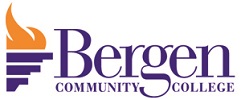Submit a BIT Form
Bergen Community College’s Behavioral Intervention Team’s (BIT) is a cross–campus team that meets on a regular basis to review and respond to reports of student behavior that may pose a threat of self–harm or a threat to the community.
BIT’s mission is to provide a safe environment for the campus community through collaboration, information collection, risk assessment, and intervention. The Behavioral Intervention Team is not a crisis emergency response team, rather seeks to implement
proactive strategies before an event becomes a crisis.
How does BIT work?
- Anyone concerned about specific student behavior that has the potential for possible threat to self or others should complete a BIT Form.
- BIT members review reports in a timely manner and determine appropriate action.
- Confidentiality of reports and processes are maintained as necessary.
Student in crisis needing care; e.g., expressing suicidal thoughts, emotional breakdown, family/work stressors, alcoholism, etc.
Disruptive Student
If you are an instructor and a student enrolled in your class is disruptive:
- Make sure your syllabus notes your classroom management policy.
- Provide the student a warning for 1st offense and keep documentation of the event (should it escalate).
- If the behavior continues, you may suspend the student for one class period and should file a student conduct report with the Office of Student Conduct; make sure to include your documentation of the conduct issue(s) and prior action(s) taken.
What are some signs that a student may be in distress?
A student in distress may not be disruptive to others, but may exhibit behaviors which indicate something is wrong, show signs of emotional distress and indicate that assistance is needed. They may also be reluctant or unable to acknowledge a need for personal help. Behaviors may include:
- Serious grade problems or a change from consistently passing grades to unaccountably poor performance.
- Excessive absences, especially if the student has previously demonstrated consistent attendance.
- Unusual or markedly changed patterns of interaction, i.e., avoidance of participation, excessive anxiety when called upon, domination of discussions, etc.
- Other characteristics that suggest the student is having trouble managing stress successfully; e.g., a depressed, lethargic mood; very rapid speech; swollen, red eyes; marked change in personal dress and hygiene; falling asleep during class.
- Repeated requests for special consideration, such as deadline extensions, especially if the student appears uncomfortable or highly emotional while disclosing the circumstances prompting the request.
- New or repeated behavior which pushes the limits of decorum and which interferes with effective management of the immediate environment.
- Unusual or exaggerated emotional responses which are obviously inappropriate to the situation.
How is the Behavioral Intervention Team different from other places to report student behavior issues?
Contact the team for issues that can’t be easily defined as a student conduct violation (which is reported to the Office of Student Conduct), or an emergency situation (which should be reported to the Department of Public Safety), or a perceived or present threat or imminent danger (which should be reported to law enforcement).
The team operates prior to a student issue becoming a conduct issue and/or emergency situation. Note that counseling requires the student’s participation. However, the team reviews the situation and determines which strategies to use and which college resources will be used to address the behavior.
How to Respond to Troubling Student Behavior
- Student shows evidence of a dangerous action or evidence of an emergency situation to self and/or others.
Call 911
- Student seems to present a threat to self/others and/or an imminent threat or danger is perceived.
Call Public Safety – 201-444-9200 or 6 from any campus phone
- Perceived student conduct violations.
Complete the Report an Incident Form
- Student in crisis situation needing care; e.g., expressing suicidal thoughts, emotional breakdown, family/work stressors, alcoholism, etc.
Contact the Office of Health Services – 201-447-9257 or 2 from any campus phone
- Student behaviors that do not pose an immediate threat but are a concern and could escalate if not addressed.
Complete the Behavioral Intervention Team (BIT) Form
BIT Goals
- To proactively build and sustain community with a comprehensive, collaborative team that identifies behaviors which are a risk of harm to self or others.
- To promote campus safety by fostering a culture of reporting (reducing bureaucratic process).
- To help and support students via educational, rather than punitive means, according to established protocols and transparent procedures while protecting the privacy and rights of individuals.
- To track and monitor problematic behavior by providing consultation, referral, and support to faculty and staff.
- To provide training and education as we work together to promote student and community success.
- To assess, evaluate, and evolve BIT team functions and protocols while identifying and refining best practices.
- To provide comprehensive wrap–around support for student success.
BIT Team Members
The BIT is co-chaired by the Assistant Vice-President of Student Affairs and the Coordinator of Student Conduct. The team consists of faculty and staff from various disciplines and departments.
Our sincere thank you to Seattle Central College and their Behavioral Intervention Team for this information.
